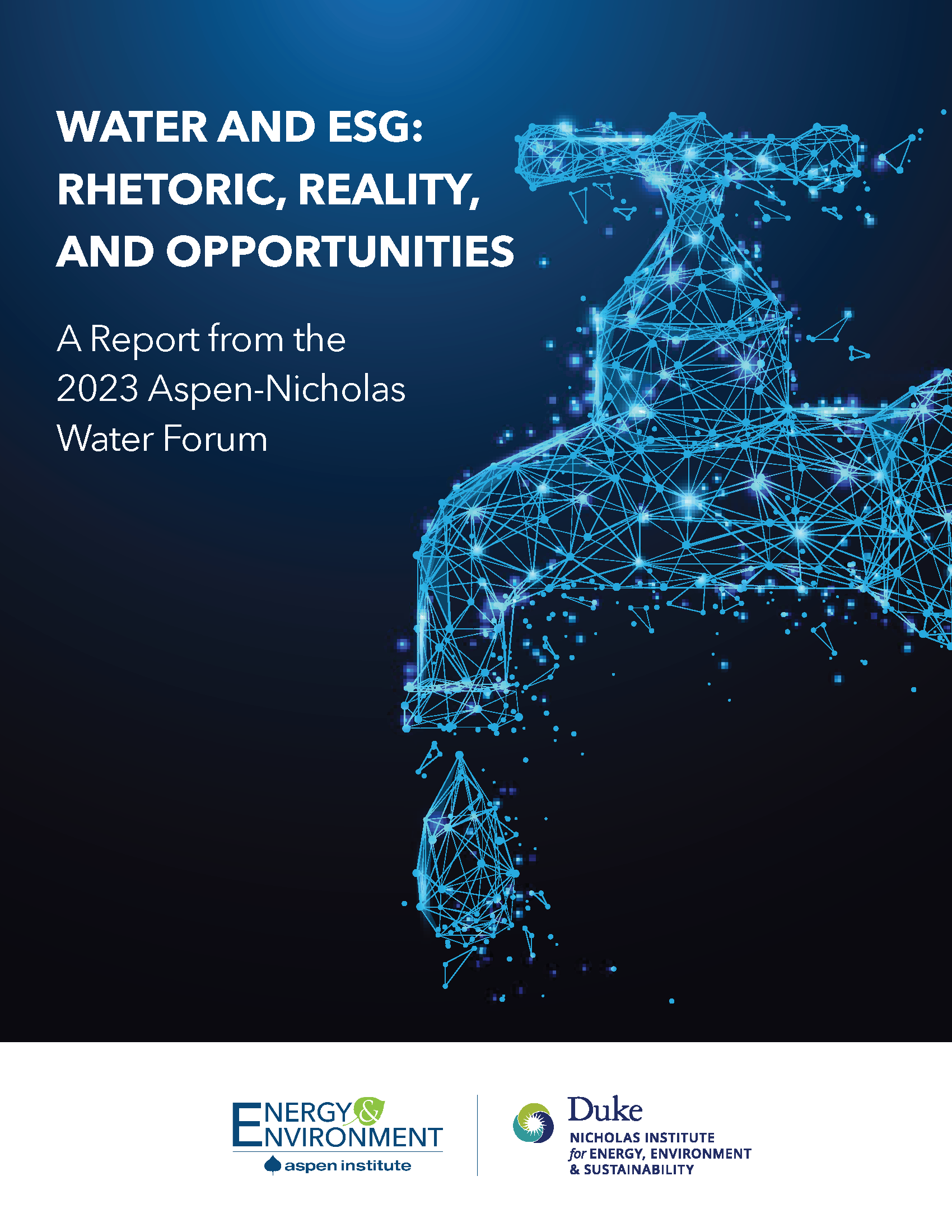In 2004, the United Nations released a report that introduced the concept of linking investment markets and sustainability goals. The proposal aimed to improve the integration of social, environmental, and governance (ESG) requirements and objectives into financial decision-making across different scales to better inform asset management, securities brokerage services and associated research functions. Today, ESG has evolved into a catch-all phrase, wielded to represent the intersection of financial considerations with broader, non-financial objectives. It has been envisioned as a way to either inform financial decisions with a greater breadth of considerations or alternatively, to shape the deployment of capital in more positive and targeted ways. These goals are quite different, and their differences have impacted the effectiveness of ESG standards in achieving their lofty goals.
In the development of these standards, effectiveness not-withstanding, water has not been well represented. Despite the centrality of water to the environment, as well as to communities and society broadly, water has simply been overlooked in ESG goal-setting processes, analyses, or frameworks.
Building on the ongoing Aspen-Nicholas Water Forum theme of, “What does good water governance look like for the United States?,” the objective of the 2023 Aspen-Nicholas Water Forum was to explore why this has been the case, and what might be the opportunities, or risks, of greater inclusion of water into ESG generally. This report highlights the discussions at the forum on how ESG does, and does not intersect with water, and what the challenges or opportunities might be.
The 2023 Aspen-Nicholas Water Forum is the twelfth water forum in the Aspen Institute and Nicholas Institute partnership. The Aspen-Nicholas Water Forum seeks dialogue that will probe how we as a society can balance the competing demands of equity with liberty, and community with efficiency.


